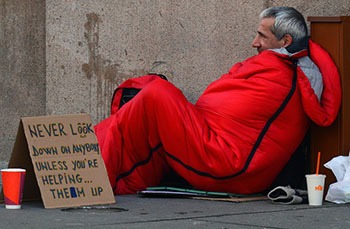How your local public housing authority can reduce barriers for people with criminal records
Millions of people with criminal records likely meet the income eligibility requirements for public housing assistance. But needlessly strict local policies lock them out of housing. An explanation as to how your public housing authority may be overly exclusionary.
by Selena Muñoz-Jones and Emily Widra, February 15, 2023 from Prison Policy Initiative
 Housing is a human right: the right to adequate housing is recognized by international law, including the Universal Declaration of Human Rights. But we know that in the U.S., hundreds of thousands of people face homelessness, and there are particularly high rates of homelessness and housing insecurity among formerly incarcerated people across the country. Our previous research found that people who have been to prison just once experience homelessness at a rate nearly 7 times higher than the general public. But people incarcerated more than once have rates 13 times higher than the general public. Inevitably, part of the problem is that public housing policies — which should be a part of a crucial safety net against housing insecurity — actually discriminate against people with criminal legal involvement and criminal records.
Housing is a human right: the right to adequate housing is recognized by international law, including the Universal Declaration of Human Rights. But we know that in the U.S., hundreds of thousands of people face homelessness, and there are particularly high rates of homelessness and housing insecurity among formerly incarcerated people across the country. Our previous research found that people who have been to prison just once experience homelessness at a rate nearly 7 times higher than the general public. But people incarcerated more than once have rates 13 times higher than the general public. Inevitably, part of the problem is that public housing policies — which should be a part of a crucial safety net against housing insecurity — actually discriminate against people with criminal legal involvement and criminal records.
Part I of this briefing delves deep into the policies of the U.S. Department of Housing and Urban Development (HUD) that give local public housing authorities (PHAs) overly broad discretion to deny housing to people with criminal records. We review how PHAs wield this discretion to deny people housing in more ways than required by federal law. Part II of this briefing is a guide to critically reviewing public housing policies to help you identify the criteria your local PHA has chosen to use to exclude people with criminal records and to help you evaluate whether those criteria are necessary or potential targets for local-level reforms.
